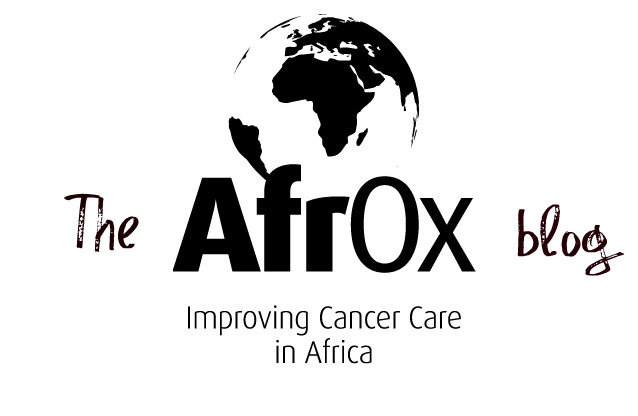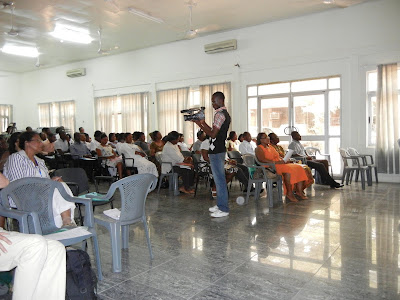Last year, AfrOx helped to set up a twinning partnership between the childhood cancer unit at the Korle Bu Teaching Hospital (KBTH) in Accra and the Royal Hospital for Sick Children (RHSC) in Edinburgh, to help improve care for children with cancer in Ghana. Dr Vanita Sharma, Head of Programmes, AfrOx describes how one year into the programme a lot has been achieved, thanks to the hard work of everyone involved…
After a busy twelve months, the twinning project between the Accra and Edinburgh paediatric cancer units has got off to a very encouraging start. Over 100 Ghanaian doctors and nurses have taken part in two workshops held at KBTH in November 2010 and April this year. The first workshop was led by the Edinburgh team, including two doctors, a nurse and a play therapist, and focused on training staff from KBTH as well as some staff from Ghana’s only other paediatric oncology unit in Kumasi. The KBTH staff decided on the content of the workshop training, to ensure that teaching was directed towards their needs. (To read how the first workshop went, click here). The second workshop, in April, was led by Dr Lorna Renner, who heads the busy KBTH team, and brought together doctors and nurses from other hospitals in Ghana to raise awareness of children’s cancer and the importance of early detection and referral.
To read more about the background and aims of the partnership, click here.
One challenge that arose during the year was how best to maintain contact between the two teams in between workshops. We’ve therefore set up an internet link between the two units, using the website MedicineAfrica.com. Georgina Newman, a medical student volunteer, ran sessions for the Edinburgh and Ghana teams on how to use the website and the first online tutorial took place in July. There are now monthly online tutorials taking place, with nurses from RHSC Edinburgh providing training for the team of nurses from KBTH in Ghana. To read about the MedicineAfrica project and the training in Edinburgh, click here, and to find out more about the training and first tutorial in Ghana, click here.
A childhood cancer database has also been set up at KBTH to enable accurate monitoring so that key areas for improvement of care can be identified and acted upon. AfrOx donated two computers to be used for inputting the data for the registry. We also supported Dr Meaghann Weaver, a paediatrician from the US to travel to Ghana for three weeks to train the local data clerks on how to use the new registry. All new patient data is now being added which will allow a more accurate assessment of the problems faced in paediatric cancer care in Ghana.
One of the project’s main objectives was to raise awareness of childhood cancer across Ghana. Working with the Ghana Parents Association of Children with Cancer (GHAPACC), AfrOx designed two posters to raise awareness of the signs and symptoms of childhood cancer in Africa, which can be viewed here. We’ve donated over 2000 copies of each poster to GHAPACC which they have used in their local communities’ schools, churches and work places. The posters were also used at events on international child cancer day in February and for training health-workers in early detection in the April workshop.
Finally, the KBTH child cancer unit must be sustainable in the long term. To this end, AfrOx and World Child Cancer have all been working closely to help support efforts to secure local funding. One key success has been that a local foundation, CanCare Foundation has agreed to raise funding in Ghana to support the project and has been providing funding towards subsidising the costs of treatment for families that cannot afford it. World Child Cancer has also provided fundraising skills training to GHAPACC who run regular events to raise money to support the unit.
We’d like to thank all those who have been working hard over the last year to get the project off to such a successful start. In the second year, we hope to build on the solid foundations already established to achieve sustainable improvements in childhood cancer treatment at KBTH and across Ghana. Please check this blog regularly for progress updates.
We’d like to thank all those who have been working hard over the last year to get the project off to such a successful start. In the second year, we hope to build on the solid foundations already established to achieve sustainable improvements in childhood cancer treatment at KBTH and across Ghana. Please check this blog regularly for progress updates.
If you would like to donate to support AfrOx’s work, please click here.









